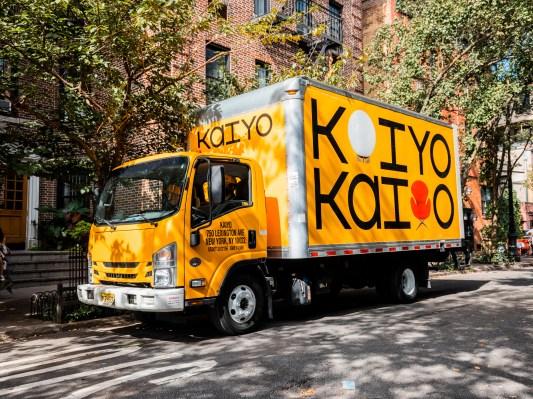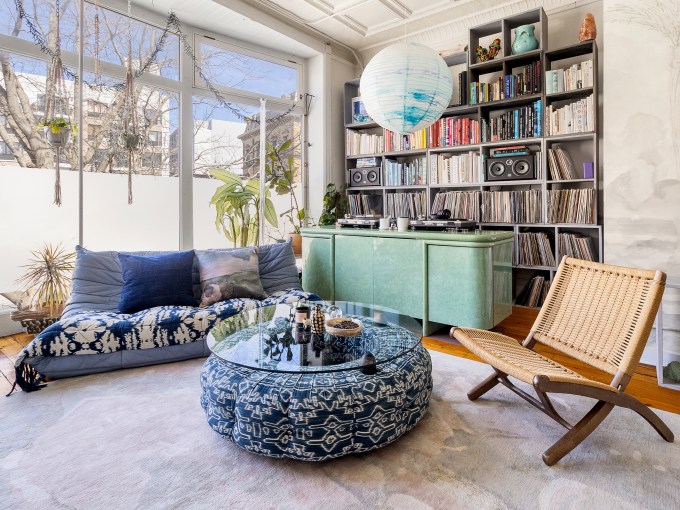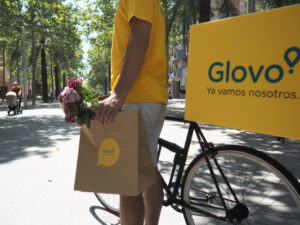
Furniture is one of the largest waste categories in the U.S., generating more than twelve million tons of waste in landfills every year, according to 2018 data by the Environmental Protection Agency. Kaiyo, an online marketplace for second-hand furniture, says it has helped the impact by keeping nearly three million pounds out of landfills since its launch in 2015.
Kaiyo founder and CEO Alpay Koralturk said in an interview with TC that he was familiar with the hassle of buying and selling furniture after moving five times in five years in NYC. He and his wife, who are passionate about sustainability, tried buying second-hand to furnish the apartment when they moved into a new apartment in 2014. Koralturk said it was such a frustrating experience that he thought there needed to be an easier way – something convenient for the customer but ultimately better for the planet.
“At Kaiyo, our mission is to make great design accessible to everyone. Furniture is one of the largest investments consumers make, yet historically, re-selling has posed a significant challenge, making it a major contributor to landfill waste,” said Koralturk.
Koralturk founded Kaiyo, formerly known as Furnishare, which started out as a rental service before pivoting to the current marketplace model.
Kaiyo said Tuesday it has raised a $36 million Series B in equity and debt financing to reinforce growing consumer demand for second-hand furniture and accelerate growth and market expansion across the country, starting from California. The new funding, which brings its total raised to $50 million, was led by Edison Partners and included participation from returning backers Moderne Ventures, Lerer Hippeau, and Max Ventures.
The Series B round comes on the back of its rapid growth. Over the past two years, Kaiyo experienced more than 100 percent growth in terms of revenue year over year due to growing interest in the circular economy and pandemic-induced supply chain issues, according to Koralturk, who did not disclose the revenue number.
Kaiyo’s customers can buy and sell pre-owned and environmental-friendly furniture from brands including Restoration Hardware, Design Within Reach, West Elm, Room & Board, and more with white-globe delivery in a matter of days.
Kaiyo provides fast, free pickup for sellers and cleaning, photography, storage, and delivery to buyers – all at no cost to its sellers. Its unique feature is that sellers receive an instant offer immediately after their appointment is accepted. They can cash out without waiting for their item to sell. Kaiyo is the first in the industry to provide this option, Koralturk said told TC. Another unique feature is high-resolution photography of the actual item for sale, unlike all other marketplaces that rely on stock photos or those provided by the seller, Koralturk said. Its buyers can zoom in and view minor scratches and defects and verify tags and marks. All items Kaiyo features are professionally cleaned and stored in its temperature-controlled warehouses before delivery. Koralturk noted.
Additionally, the startup uses its proprietary algorithm to identify the items most likely to sell in its marketplace and set pricing through the same algorithm, Koralturk said.

Kaiyo’s second-hand furniture
Kaiyo currently has hundreds of thousands of registered customers and more than 160 employees, according to Koralturk.
Koralturk told TC he believes the existing second-hand market, which is highly inefficient and underpenetrated, is expected to grow considerably.
The furniture resale industry is projected to reach $16.6 billion in sales by 2025, from 9.9 billion in 2018.
“Kaiyo is disrupting furniture re-commerce by solving for both seller and customer pain points and creating a frictionless experience,” said Daniel Herscovici, growth equity investor and partner at Edison Partners. “Their vision has transformed the circular economy for used furniture and created a next-generation home décor marketplace with sustainability and environmental impact at its core.”










